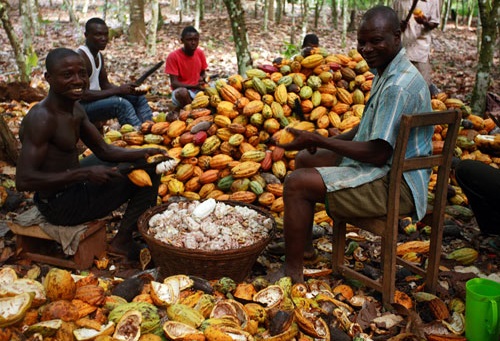The Climate Investment Fund (CIF) of the World Bank and the African Development Bank, created to deal with climate change related issues is urging Ghanaian cocoa farmers to plant at least 18 trees per a hectare on their plantation to improve vegetation cover and increase yield.
The move aims among others things to help Ghana match-up with Cote d’Ivoire’s 40 per cent of cocoa production from forest reserves and possibly overtake her as the lead cocoa producer in the world.
The Technical Director of the Ministry of Lands and Natural Resources, Mr Musah Abu-Juam, said cocoa production in the forest reserves provide better protection for the crop and improves yield.
Estimation
He estimated that approximately six million trees have been planted over the 10 years of the CIF project in Ghana but said it still fell short of Cote d’Ivoire’s achievement.
The technical director said rather than help improve vegetation cover, coca production was responsible for half of Ghana’s deforestation, recently as high as two per cent per a year, one of the world’s highest.
In Ghana, the CIF invested a total of $75.7 million in support of sustainable cocoa and agriculture practices, greater access to trees tenure, more robust institutional capacity and policy reforms, and private sector engagement in climate action.
Reasons
A team from the fund in Washington, USA, is in Ghana to assess the progress of the project over the last 10 years and to offer suggestions to make it better.
The Communication Officer of the team, Scott Vincent Andrews, told Daily Graphic at Fumesua near Kumasi last Monday that the CIF was helping empower indigenous people and local communities and forest-dependent communities to design and implement forest policies in line with their own interest.
Achievements
He said the fund has unlocked more than $75 million in forest investments to make Ghana greener, more resilient, and accelerate its low-carbon development path.
Another $40 million is helping to create an enabling environment for renewable energy scale-up, focusing on renewable energy mini-grids and stand-alone solar photovoltaic (PV) systems, solar PV-based net metering with storage, and utility-scale solar PV and wind power generation.
Among other things, CIF is helping improve biodiversity by preventing forest loss and enhancing knowledge about species diversity.

